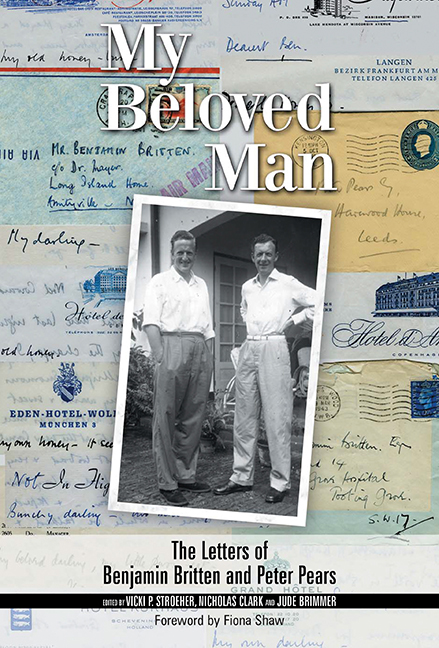Book contents
Foreword by Fiona Shaw
Published online by Cambridge University Press: 05 July 2016
Summary
All artists share a longing for what Yeats called ‘the heart and the hearth’… the desire to be home, but blessed and cursed by the need to communicate with the world. These letters show how two huge artists who were so often parted, survived. There is no question of either of them changing their natures, one an extrovert performer, the other a quiet composer – scruffed necks pulled apart by their gifts which were their attraction – and both paying the price, dealing with the necessity of long parting with an unrestrained frankness that allowed them to be together, intimately creating a hermetically sealed world.
To read these letters is to climb up a wall and peer into the secret garden of two giants. You expect to hear the roar of their success and achievements but instead you read the timpani sound of their affections. It is the terms of endearments, the ‘Honey buns’, the ‘My darlings’, that remind us we have encroached on their lives. Many of the letters have our text message modernity and brevity. Some are like email as they send short hand requests for times of trains, whinging about touring and the disorientation of endless hotels, asking for scores to be found on top of cupboards, passing love from mutual friends. The quarrels too are immediately recognisable, reprimands for mistimed calls and bad moods, the vibrant, intense need to make up, and heart-stopping, delightful, random declarations.
It is astonishing that these men created a totally realised domestic relationship that has remarkable contemporary immediacy during a period when it was illegal to love someone of your own sex. To me their lives seem an act of huge integrity. It shocks us into admiring the clarity of their affections. Here we see the secret, brave counterbalance in this fulcrum of daily love as it beams light into the seam of desolate ostracisation that runs through Ben's work.
Letters are fragments. The act of parting and re-meeting which of course we never read would hold a different vocabulary. This throws up the interesting hunt in the mystery of creative invention.
In my experience of creative enterprise and relationships, new work is the art of pushing each other's abilities. Practical experiments occur in the rehearsal room, the piano room for Britten.
- Type
- Chapter
- Information
- My Beloved ManThe Letters of Benjamin Britten and Peter Pears, pp. xiii - xivPublisher: Boydell & BrewerPrint publication year: 2016



